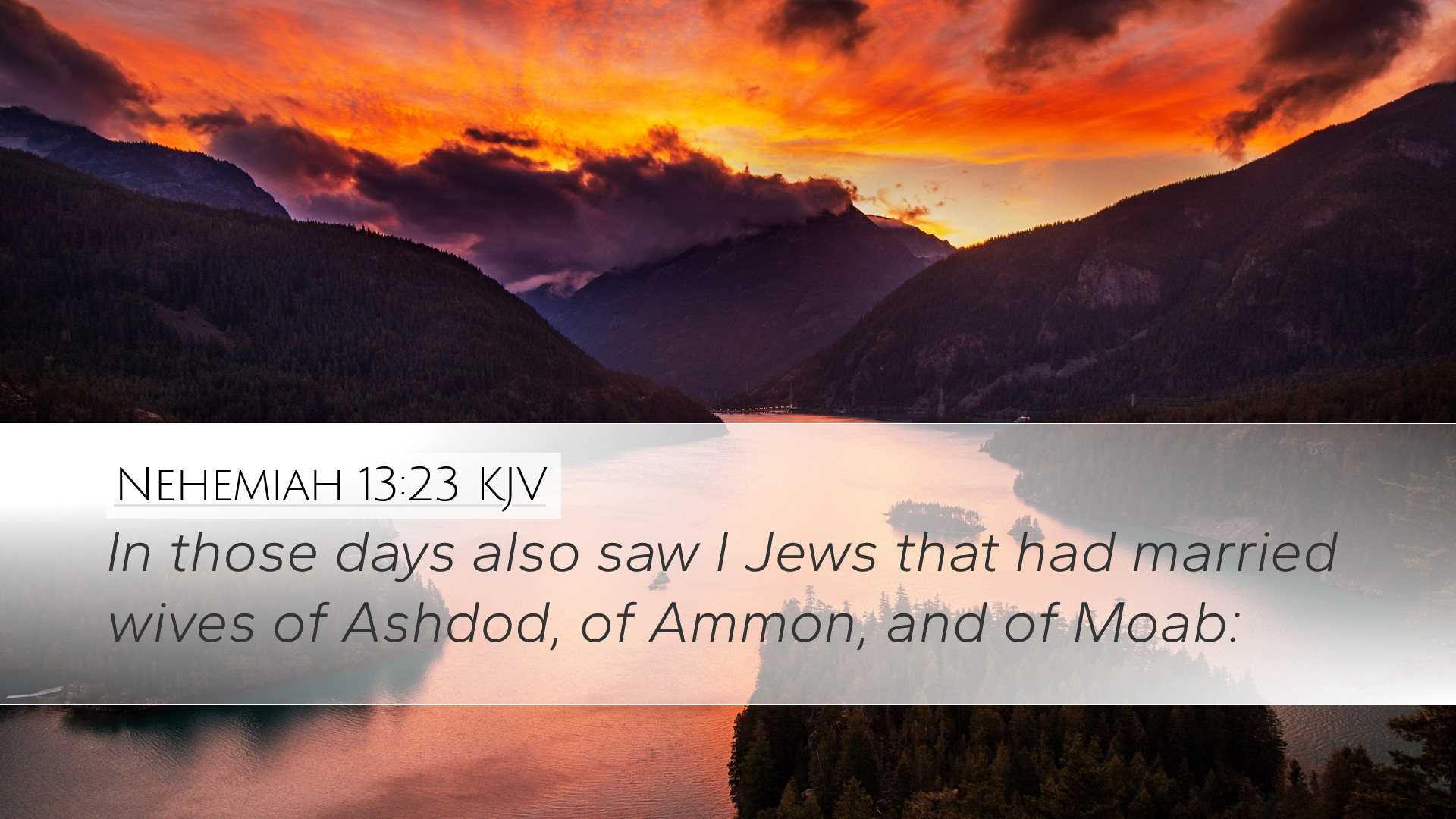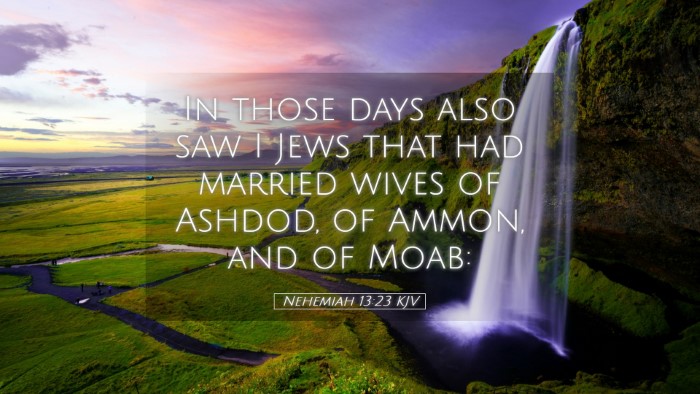Commentary on Nehemiah 13:23
Nehemiah 13:23 states: "In those days also saw I Jews that had married wives of Ashdod, of Ammon, and of Moab:" This verse highlights a significant issue facing the Jewish community during the time of Nehemiah's governorship. The context reveals a breach of covenant faithfulness that challenges not only the religious purity of the Israelites but also their national identity.
Contextual Background
Following the return of the exiles from Babylon, the Jews were charged with rebuilding Jerusalem and restoring their worship. Nehemiah's leadership emphasized the importance of adhering to God's laws, particularly concerning intermarriage with the nations surrounding them, which were often associated with idolatry and spiritual corruption.
Analysis of the Text
The act of marrying foreign wives—specifically those from Ashdod, Ammon, and Moab—demonstrates a departure from the commitments made to uphold the integrity of their faith and community.
-
Spiritual Implications: Matthew Henry points out that such marriages threatened the faith of the people, as the identities and practices of these foreign nations were rooted in paganism. The leaders’ intermarriage with these peoples could lead to the corruption of the Jewish faith.
-
Covenant Violation: Albert Barnes elucidates that this verse underscores a violation of the explicit commands found in Deuteronomy 7:3-4, which instructed the Israelites not to intermarry with the inhabitants of the land lest they turn away from following God.
-
Community Integrity: Adam Clarke emphasizes that the integrity of the Jewish community depended on their distinctiveness. The intermarriage not only risked idolatry but also diluted the cultural and religious identity of the Israelites as the chosen people of God.
Historical Considerations
The historical context of Nehemiah's time also plays a crucial role in understanding this verse. Following a period of Babylonian captivity, the Jewish people sought to reaffirm their identity. Nehemiah's concern was not merely with personal relationships, but with the broader implications for communal holiness and fidelity to God.
Theological Reflection
Nehemiah's discovery of these intermarriages prompts a theological reflection on the nature of God's covenant with His people. The holiness of God requires a corresponding lifestyle among His followers.
-
Covenantal Faithfulness: The notion of covenant reflects God's desire for a people who are set apart. The marriages mentioned in this verse signify a willingness to compromise this divine command, thus risking divine disfavor and judgment.
-
Implications for the Church Today: The church today faces parallel issues concerning cultural assimilation and the potential dilution of core beliefs. The call is for believers to engage with the world without compromising their identity as children of God.
Practical Applications
For pastors, students, and theologians, Nehemiah 13:23 serves as a reminder of the importance of maintaining purity in both personal and communal settings.
-
Guarding Against Idolatry: Believers are cautioned to be mindful of influences that could lead them away from true worship.
-
Promoting Unity in the Church: The church is called to be a unified body under the lordship of Christ, making careful decisions about relationships that could impact the body of Christ.
Conclusion
Nehemiah 13:23 serves as a potent reminder of the consequences of disobedience to God's commands regarding relationships and community purity. The insights drawn from the commentaries of Matthew Henry, Albert Barnes, and Adam Clarke collectively highlight the importance of adhering to God's covenant and the call for modern believers to reflect on their own commitments. The call remains to be vigilant against influences that might compromise one’s faith and integrity.


